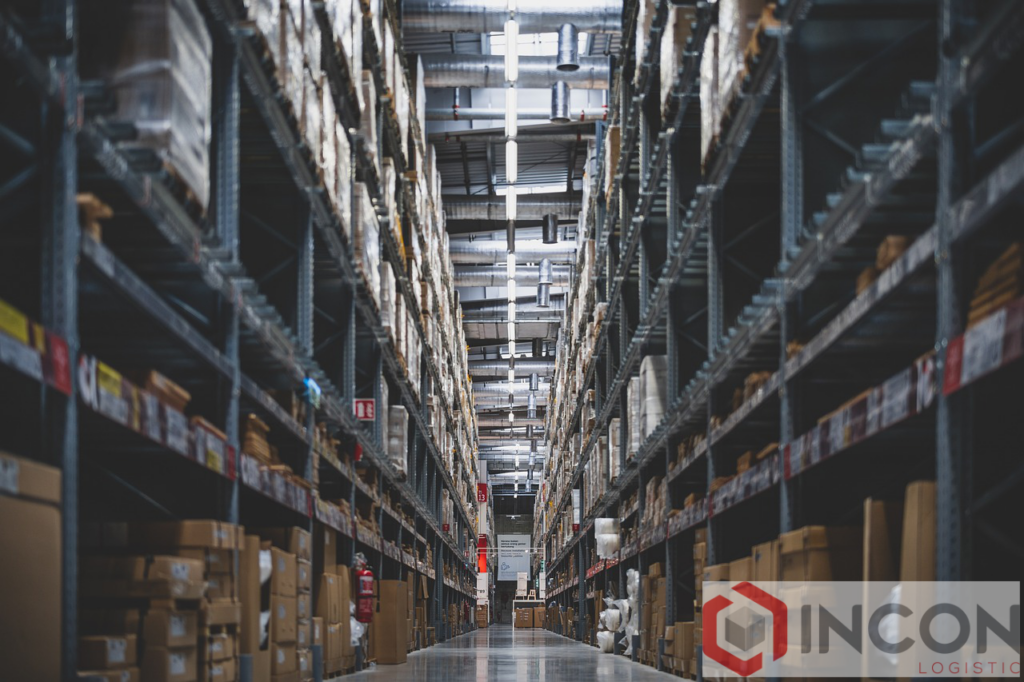Customs Warehouse: Why You Should Know About It?
Customs warehousing is a logistical and customs procedure that allows for the temporary storage of imported goods in a customs warehouse without the need for immediate customs clearance. This system is particularly useful in international trade, where goods arrive from various countries, and the customs processing can be time-consuming.
How does it work?
The customs warehousing process consists of the following steps:
Import of Goods: When an importer brings goods into a country, they submit the necessary documentation during customs procedures, which includes information on the origin, quantity, and value of the goods.
Placement in Customs Warehouse: Once the goods arrive, they are placed in a customs warehouse. Customs warehouses are typically located near customs borders to facilitate the transfer of goods.
Temporary Storage: Goods can be temporarily stored in the customs warehouse without having to pay customs duties. The duration of temporary storage is usually governed by legal regulations.
Customs Clearance: During the customs warehousing period, the importer decides when and how they wish to proceed with the customs clearance of the goods. After the customs clearance is completed, any applicable duties and taxes must be paid before the goods can enter the domestic market.
Release for Free Circulation: Once customs clearance is complete, the goods can be released for free circulation, allowing them to reach the final user or sales point.
Benefits
Customs warehousing provides importers with the opportunity to:
Delay the fulfillment of customs duties and tax obligations, thus improving their cash flow.
Offer flexibility in managing goods, as they can be made available based on market demand.
Reduce storage costs and unnecessary cash flow during the warehousing process.
Therefore, customs warehousing is a valuable tool that can help traders manage imported goods more effectively and optimize their international trade operations.
Disadvantages
Costs: Although customs duties and VAT payments can be deferred, the use of customs warehouses does not exempt importers from storage fees and other administrative costs.
Legal and Administrative Requirements: The use of customs warehouses is subject to strict legal and administrative requirements, which can be time-consuming to comply with. Failure to meet these requirements may result in penalties for the company.
Exclusive Use: The use of customs warehouses is limited to customs clearance, meaning that further processing or repackaging of products may be necessary before exporting or for later sales.
Inventory Management Challenges: Storing goods for an extended period can increase inventory management challenges, including tracking products and maintaining freshness, especially in the case of perishable goods.
Types of Customs Warehouses
There are different types of customs warehouses, depending on their purpose and how they are used:
Public Customs Warehouses: These warehouses are accessible to anyone, and any business that needs to store goods under customs procedures can utilize them. Public customs warehouses generally have larger capacities and can handle a wide variety of goods.
Private Customs Warehouses: Operated by the owners of the goods, these warehouses are specifically intended for storing their products. Private customs warehouses are often used by larger companies that import significant quantities of goods.
Temporary Customs Warehouses: These warehouses are designed for temporary storage, typically for a short duration. Goods can be stored here for a maximum of six months and generally serve to expedite customs processing.
Consignment Warehouses: In these warehouses, goods can remain until the end-user order arrives. Consignment warehouses allow for delayed customs payments until the goods leave the warehouse for the final buyer.
Storage Period Without VAT and Customs Duties
If the products do not yet have a final buyer but an order has already been placed, and the delivery date is postponed, customs warehouses can be utilized for storing imported goods from outside the community. Goods originating from a third country that are placed in consignment warehouses are not subject to either value-added tax (VAT) or customs duties during the storage period. The VAT and customs payment obligations only come into effect when the goods are released for free circulation.
Although the storage period is unlimited, storage and handling fees are incurred, which must be paid by the owner of the goods. There is no specific timeframe or method for the removal of products from a public customs warehouse; this can occur either through the release of the goods for free circulation or other customs procedures.
Regulations
The regulation of customs warehousing is strictly governed by the customs laws of each country and international agreements. These regulations ensure that the operation of customs warehouses complies with trade and security standards.
Customs Code: In the European Union, the primary legislation governing customs warehousing is the Customs Code, which defines the conditions for using customs warehouses, the entry, storage, and removal of goods. The EU Customs Code facilitates uniform and efficient customs processing throughout the union.
International Agreements: Regulations regarding customs warehousing often include international trade agreements aimed at facilitating trade and simplifying customs procedures.
Customs Authority Guidelines: Customs authorities in individual countries develop their own guidelines for operating customs warehouses, including procedures for the entry and removal of goods, documentation requirements, and the duration of storage.
An important factor is whether the sale of products takes place domestically or in other EU markets. If the products are sold within Hungary, customs authorities require the payment of customs duties and VAT on the goods. The rate of value-added tax (VAT) and the obligation to pay it are determined by the country where the goods are released for free circulation. In such cases, however, it is necessary to present supporting documents to the Hungarian customs authority that prove the goods have crossed the national border and that any VAT obligations have been fulfilled.
Do you have any further questions about customs warehousing? Do you need assistance with customs clearance? Feel free to reach out to us! With over 20 years of experience in logistics, we ensure that you can enjoy the peace of mind guaranteed by INCON!

